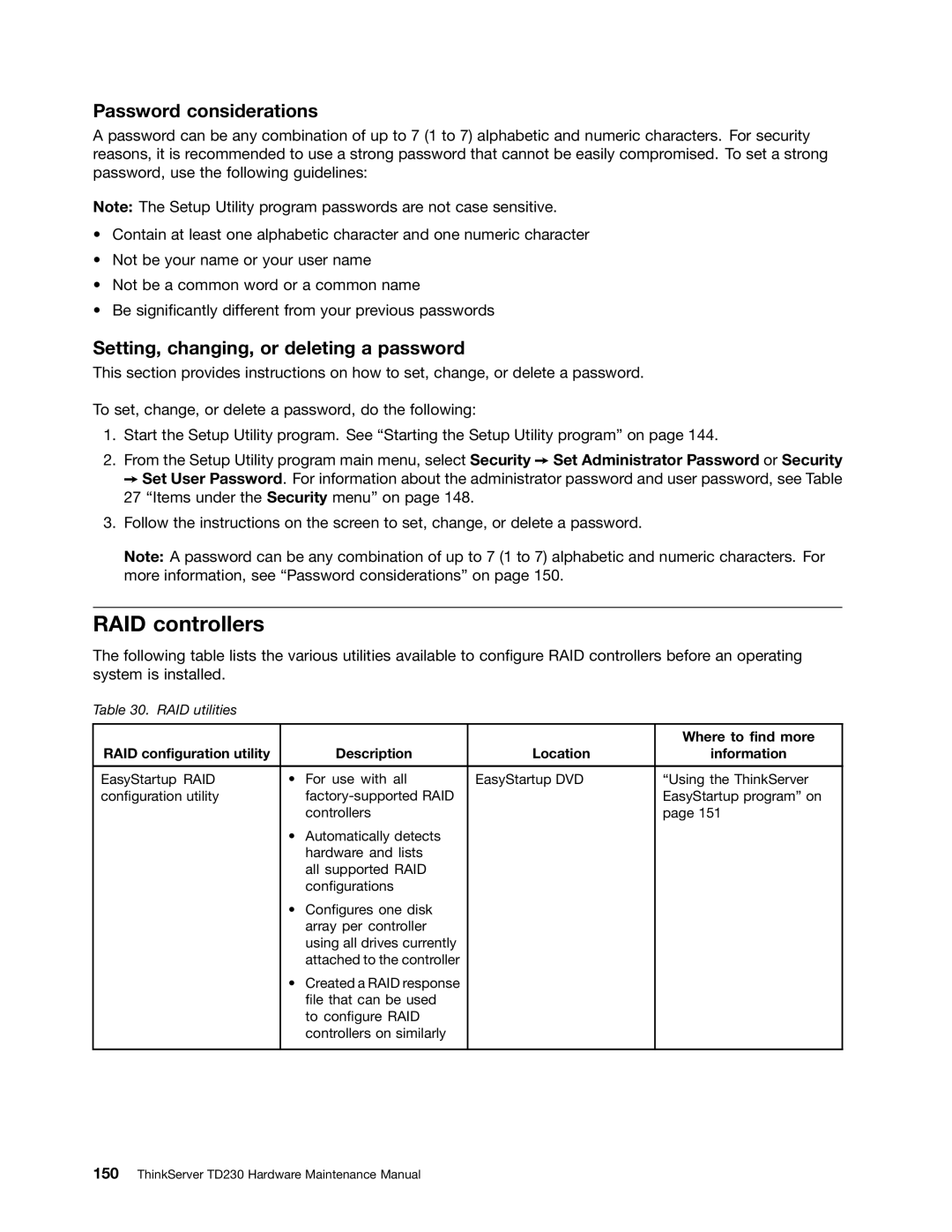Password considerations
A password can be any combination of up to 7 (1 to 7) alphabetic and numeric characters. For security reasons, it is recommended to use a strong password that cannot be easily compromised. To set a strong password, use the following guidelines:
Note: The Setup Utility program passwords are not case sensitive.
•Contain at least one alphabetic character and one numeric character
•Not be your name or your user name
•Not be a common word or a common name
•Be significantly different from your previous passwords
Setting, changing, or deleting a password
This section provides instructions on how to set, change, or delete a password.
To set, change, or delete a password, do the following:
1.Start the Setup Utility program. See “Starting the Setup Utility program” on page 144.
2.From the Setup Utility program main menu, select Security ➙ Set Administrator Password or Security ➙ Set User Password. For information about the administrator password and user password, see Table 27 “Items under the Security menu” on page 148.
3.Follow the instructions on the screen to set, change, or delete a password.
Note: A password can be any combination of up to 7 (1 to 7) alphabetic and numeric characters. For more information, see “Password considerations” on page 150.
RAID controllers
The following table lists the various utilities available to configure RAID controllers before an operating system is installed.
Table 30. RAID utilities
|
|
|
| Where to find more |
RAID configuration utility |
| Description | Location | information |
|
|
|
|
|
EasyStartup RAID | • | For use with all | EasyStartup DVD | “Using the ThinkServer |
configuration utility |
|
| EasyStartup program” on | |
|
| controllers |
| page 151 |
| • | Automatically detects |
|
|
|
| hardware and lists |
|
|
|
| all supported RAID |
|
|
|
| configurations |
|
|
| • | Configures one disk |
|
|
|
| array per controller |
|
|
|
| using all drives currently |
|
|
|
| attached to the controller |
|
|
| • Created a RAID response |
|
| |
|
| file that can be used |
|
|
|
| to configure RAID |
|
|
|
| controllers on similarly |
|
|
|
|
|
|
|
